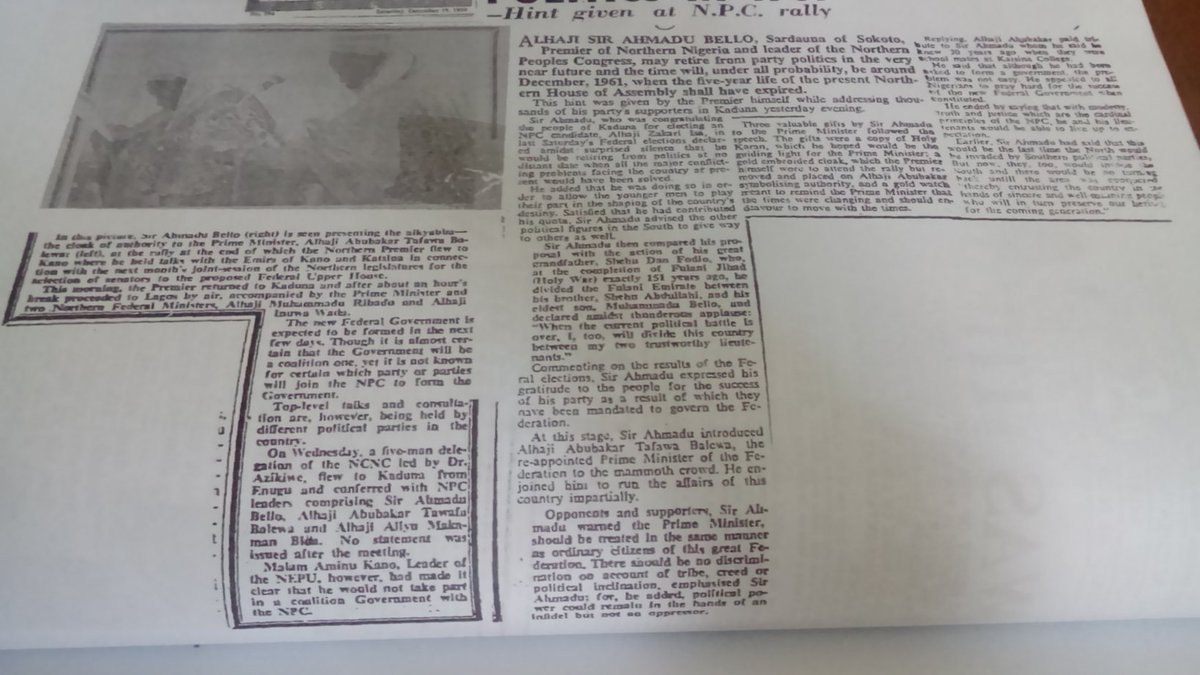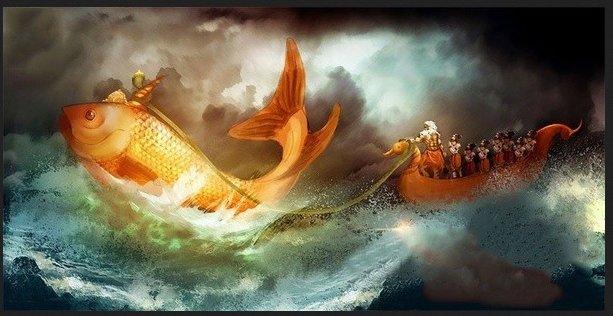Today, we'll discuss major political events in months leading to Independence Day in 1960 and immediately after, including what fuelled growing fears of "Northern domination" in the South.
Awo had just suffered the biggest setback of his political career
In fact, from when Bello entered politics in 1950-51, he had enjoyed success after success with virtually no setbacks.
Though Bello could have become Prime Minister, he chose not to, remaining Premier of the North from where he pulled the strings.
After the 1959 elections, Bello's statements became increasingly less restrained, helping fuel fears Nigeria was going to come under "Northern domination" as Awo had long been insisting would happen if the North was not broken up.
In his 1960 autobiography, published just before independence, Awo repeated his claims NPC had an agenda for Northern domination and
Falola and Heaton aptly describe Nigeria as a "state without a nation" at the time of independence.
"On paper, the system seemed fair and reasonable; it gave the opposition the chance in future
By 1962, even Zik's NCNC was feeling marginalized by the dominant NPC despite being in coalition with it.
This we shall discuss tomorrow. Have a great weekend folks!😃










